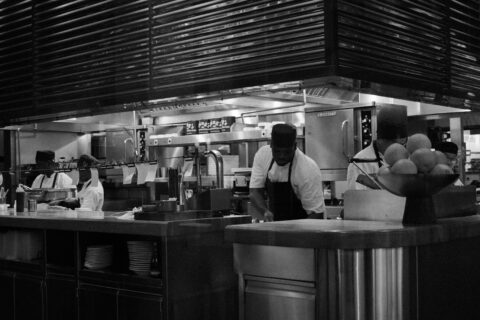Complaints are almost inevitable when you run a hospitality venue.
As sure as the sun will rise tomorrow, at some point, every licensee will have to deal with a complaint. It may be from a customer but often the complaints come from neighbours, community groups or businesses that have been negatively impacted by your venue.
By far the most common complaint that venues receive are noise related. Managing these complaints effectively is a great way to start building good relationships with the local community and will hopefully reduce the number of complaints you will receive. It can also help stop issues escalating to mediation and formal processes.
There are a number of tactics you can use to both deal with these complaints in a positive way and to minimise the complaints you get.
Create a complaint process
The first step in effectively dealing with complaints is to have a system in place for when a complaint or issue arises.
A few quick guidelines are:
-
Appoint a dedicated member of your staff who can speak with residents regarding their concerns or complaints.
-
Respond promptly to any concerns raised and communicate actions that are taken to address the concerns.
-
We recommend keeping track of all complaints with a register.
-
Set up a mobile phone number or a hotline for enquiries and complaints.
-
Put up a sign in the premises and on the business’ website about the process of how to make a complaint and include details on how to contact the staff in-charge.
-
Invite the community to attend meetings to talk about their concerns.
Be responsible and considerate
Noise-related complaints will be the main issue with nay licensed venue. Whether it’s music, patrons in the venue or patrons leaving the venue, these can all have a large impact on the surrounding neighbourhood and can significantly alter the venues relationship with the community.
However, there are some small changes you can make to help alleviate these issues.
Consider making the following adjustments:
-
Check the noise levels inside and outside the venue and consider how much noise everyone around you must deal with.
-
Turn your PA system’s volume down.
-
Get an acoustic test.
-
Close the windows and doors when your venue is facing a residential area.
-
Consider the placement of amplifiers, speakers, instruments and avoid placing them near noise-leaks, such as windows or doors.
-
Some venues put up signage asking patrons to be aware of their neighbours when leaving the venue or when smoking outside.
Take initiative
Being proactive in your work on alleviating complaints will endear you to the local community. Here are a few ways you can do this:
-
Participate in liquor accords. Liquor accords are voluntary, industry-centred organisations in local communities aiming to form solutions and strategies to address alcohol-associated issues.
-
Implement techniques to pre-emptively handle disruptive behaviour at your venue and with patrons leaving your venue.
-
Assess the venue design and identify opportunities to improve the venue to avoid noise complaints. Double-glazing windows and soundproofing are great ideas.
-
Comply with any noise-related stipulations on your liquor license.
-
Develop internal procedures and train staff in their implementation. For example, a noise management plan.
-
Revisit your development consent or consult your local council to ensure that you’re observing proper noise conditions.
Adhere to the best practices
Reach out to your neighbours
Let your community know that they can use Liquor and Gaming NSW’s official factsheets and guidelines (all available on their website) for references, should they have concerns such as disturbances regarding the venue in their neighbourhood. By looking at the guides, they will know the laws and processes they have to follow, including issuing formal and informal complaints.




